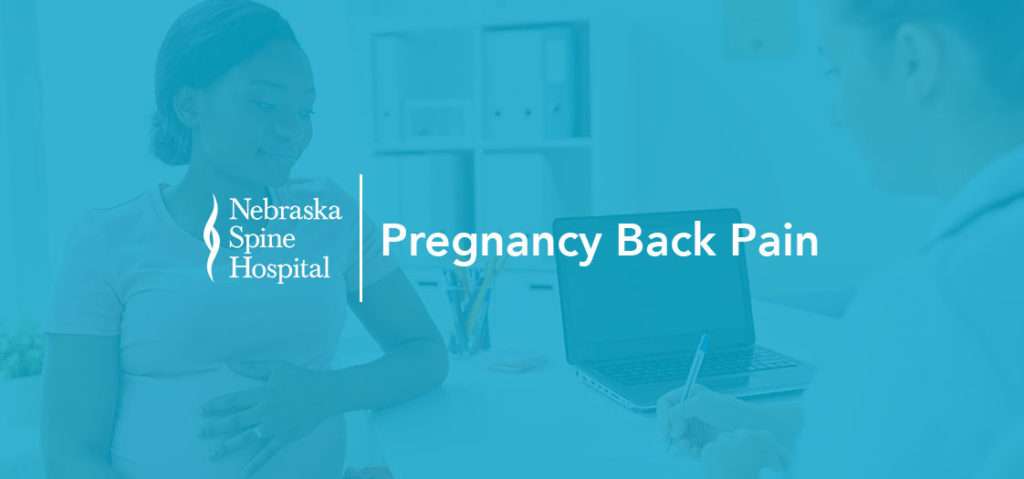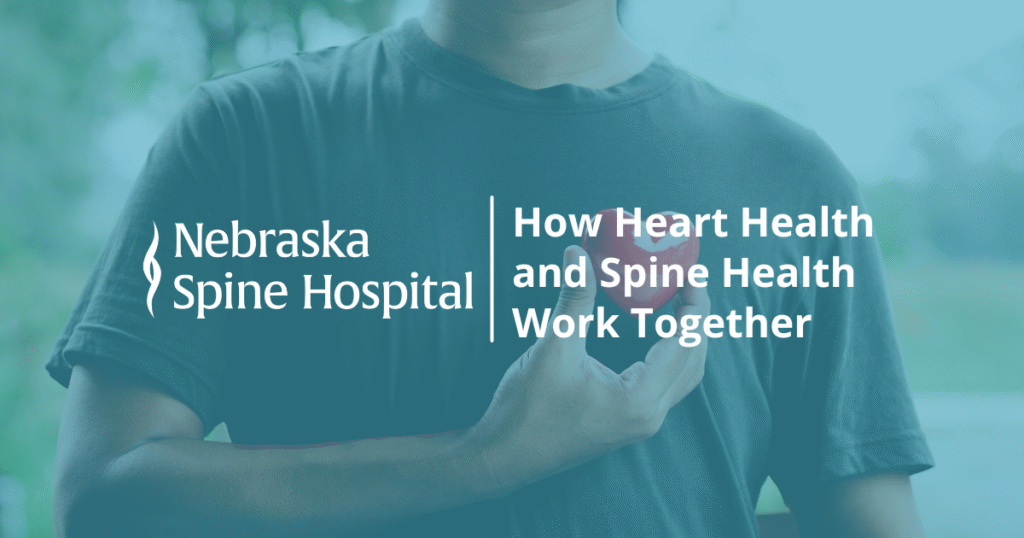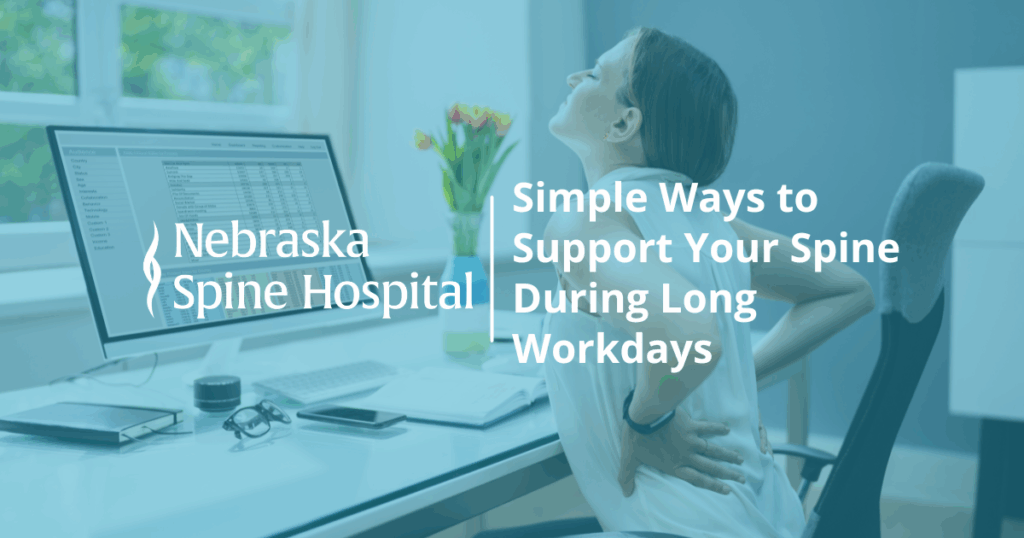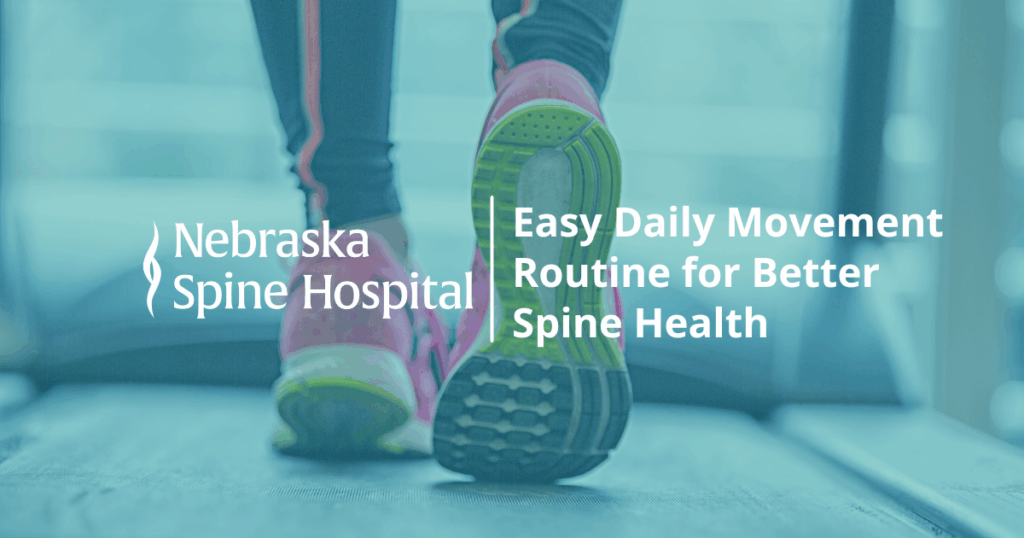Pregnancy back pain is incredibly common – half of all pregnancies are complicated by back pain. Of those, 10% of pregnancies are complicated by back pain so severe that it interferes with the ability to complete daily activities.
It’s a well-known fact that the body goes through many changes during pregnancy, but back pain should not be accepted as a natural part of pregnancy. We highly encourage those suffering from pregnancy back pain to take measures to help mitigate the pain.
One of the biggest reasons we encourage seeking help is because consistent low back pain that lasts for several weeks or months is an indicator of postpartum back pain. Keep reading to learn more about the common causes and ways to manage back pain while pregnant.
Common Causes
There are several common causes of pregnancy back pain. While pregnant, women can gain up to 25% of their body weight. The added weight of the pregnancy can stress your entire body, including your spine.
In addition to weight gain, where you gain weight can cause back pain. Often, weight gained during pregnancy is distributed in different areas of the body than normal weight gain. This can change your center of gravity, straining various muscles and causing them to fatigue quicker, leading to poor posture and pain.
Hormonal changes have also been known to contribute to back pain. A malfunction in the sacroiliac joint is one example of this. The sacroiliac joint allows for a natural alternating movement while walking. During pregnancy, hormonal changes increase the elasticity of the ligaments that control the joint, resulting in increased movement, instability, and pain.
You Might Also Like: Back Pain In Kids
Pain Management
There are various ways to help mitigate your back pain. We recommend seeking a professional medical opinion to rule out any serious conditions and to get treatment options based on your unique condition. Below are a few pain management methods your doctor may suggest.
Engage in Regular Exercise
Regular exercise is an easy way to boost your spine health. Staying active can help to prevent and alleviate back pain. Every bit of physical activity counts whether you’re taking a yoga class, walking the dog, or working in the yard. Stretching is also an integral part of an exercise routine. We recommend the following stretches to help prevent or alleviate pregnancy back pain.
Back Stretch
- Start on your hands and knees, with your knees wider than hip-width apart.
- Keeping your hands and knees in position, slowly push your hips back until your forehead is resting on or close to the ground.
- Take several deep breaths before returning to the starting position.
Chest Stretch
- While standing, clasp your hands behind your back.
- Without leaning forward, slowly stretch your arms up.
- Hold for several moments before returning to the starting position.
Hamstring Stretch
- Find a sturdy chair and stand in front of it.
- Place one foot on the seat of the chair with your toes pointing up.
- Keeping your back straight, lean forward. Make sure the movement comes from the hips, not the waist.
- Hold the stretch for several moments before returning to the starting position.
Practice Proper Posture
Proper posture is another simple way to help prevent or alleviate back pain. It is especially important to be aware of your posture while pregnant, as the added weight of the pregnancy has the potential to exacerbate back pain.
Discover what proper posture while standing feels like:
- Stand up straight with your hands at your sides. Slowly begin to arch your back, causing your stomach muscles to elongate. Gently focus on drawing your belly button into your spine. You should feel like your lower back, upper torso, and shoulders are all in alignment over your heels.
- Now, rotate your shoulders so that your thumbs are facing away from your body while simultaneously drawing your shoulder blades together.
- Relax the muscles in your neck and look up until your ears align with your shoulders. It is important to relax your jaw and breathe deeply through your mouth and nose.
Proper posture while sitting:
- Sit with your back straight and shoulders back.
- Ensure your body weight is distributed evenly on both hips.
- Bend your knees at a 90-degree angle, keeping the height of your knees even with your hips.
- Rest your feet flat on the floor or a footrest, if needed, to keep your knees aligned with your hips.
- Try to not sit in the same position for more than 30 minutes.
You Might Also Like: Scary Facts About Poor Posture
Switch Your Sleeping Position
If you’re experiencing back pain and sleep on your stomach or back, switching your sleeping position to your side may help ease back pain. While on your side, keep one or both knees bent and consider using a pillow between your knees.
Share the Knowledge on Social Media
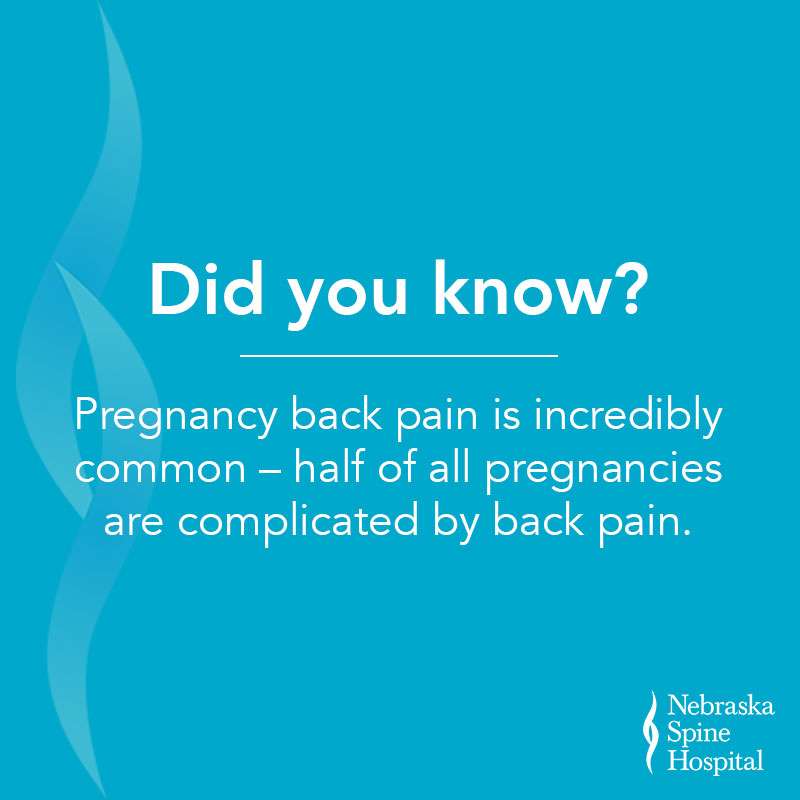


This information shouldn’t be taken as professional medical advice. If you or someone you love is suffering from pregnancy back pain, please seek professional medical attention.


